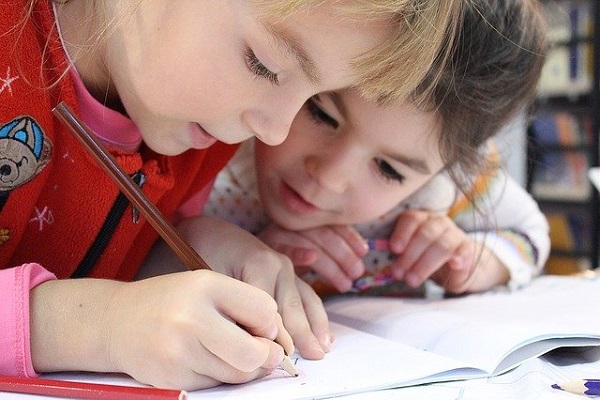Lower-income students who struggle in their assigned public school at last have another option, no matter where in New Hampshire they live. Applications for an Education Freedom Account have opened.
What’s an Education Freedom Account?
An Education Freedom Account (EFA) is a government-approved savings account that can be used to pay for various educational expenses. EFAs let families use their state per-pupil adequate education grant to purchase educational services outside of their assigned public school. The grant amount will vary by student. The average grant is estimated to be about $4,600 per student in the 2021-2022 school year.
We want to thank Drew Cline for this Op-Ed. If you have an Op-Ed or LTE
you would like us to consider, please submit it to Editor@GraniteGrok.com.
The Josiah Bartlett Center for Public Policy has a handy guide here that describes the program and can help families determine if they qualify.
Why would a family want an EFA?
Not every child thrives in his or her assigned public school. With an EFA, families can get help paying for an alternative education. An EFA puts the family, rather than the school district, in charge of a child’s education dollars. It allows families the freedom to choose the schooling option that works best for their children.
Who is eligible for an EFA?
Ideally, all New Hampshire students would have educational freedom. Every student, regardless of income, has access to a free public education within the public school system. The same universal access standard should apply to Education Freedom Accounts as well. But legislators capped access based on income.
The eligibility requirements are fairly simple. A New Hampshire resident who is eligible to enroll in a public K-12 school, and whose family earns no more than 300% of the federal poverty level, is eligible for an EFA. That’s $79,500 for a family of four.
Students qualify if they are eligible to enroll in a public school. That means that income-eligible students who are currently home-schooled or privately schooled also qualify.
What expenses does an EFA cover?
The list of covered expenses is extensive. Here are some of the highlights:
- Tuition and fees at a private school
- Tuition and fees for non-public online learning programs
- Tutoring services
- Classes contracted for and provided by a district or chartered public school, public academy or independent school
- Textbooks or other instructional materials
- Computer hardware and internet connectivity
- Educational software and applications
- Special education services
- Tuition at a higher-education institution
How can a family apply for the EFA program?
The state has contracted with Children’s Scholarship Fund New Hampshire to run the EFA program. Parents interested in applying should visit the CSFNH website here.
Why did the Legislature create Education Freedom Accounts?
Education Freedom Accounts are the latest effort of the state to help children access their optimal educational program. Decades ago, the Legislature created charter schools to give children another public school option, but not every child lives near a charter school, much less a charter school that would be the right fit. With an EFA, a family can gain access to a larger array of educational options.
Which other states have Education Savings Account programs?
These programs typically are called Education Savings Accounts. New Hampshire, being New Hampshire, chose to highlight the parental freedom these accounts create.
New Hampshire’s is the third Education Savings Account program to be enacted this year, showing the effect that COVID-19 has had on people’s thoughts about the need for education alternatives.
Eight states have approved Education Savings Account programs, with Arizona being the first in 2011, followed by Florida in 2014, Mississippi and Tennessee in 2015, North Carolina in 2017, and New Hampshire, Indiana and West Virginia this year.
Of the three programs approved this year, only New Hampshire’s will begin this fall. The other two will become operational in 2022.
What now?
The application process is open. Interested families can apply at https://nh.scholarshipfund.org/apply/nh-education-freedom-accounts/.
Drew Cline is the President of the Josiah Bartlett Center for Public Policy





